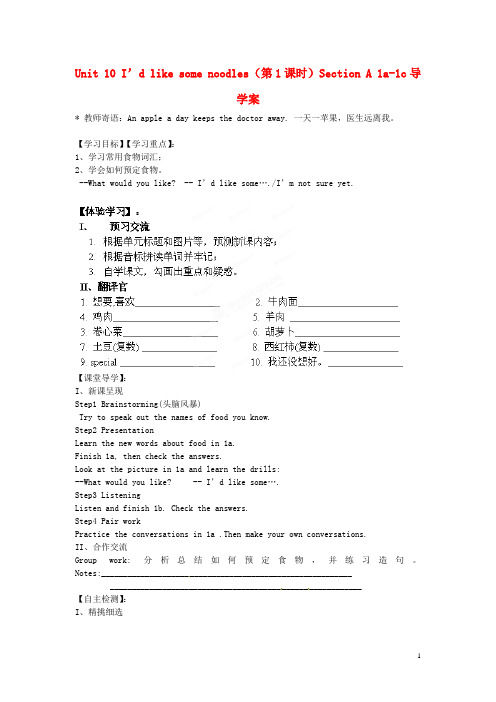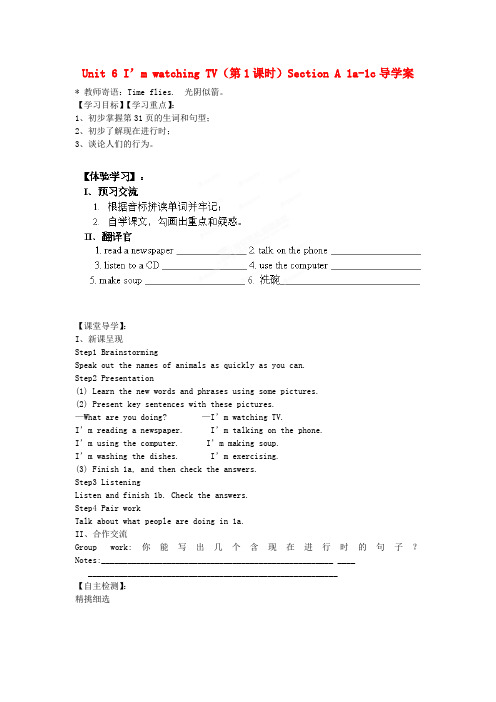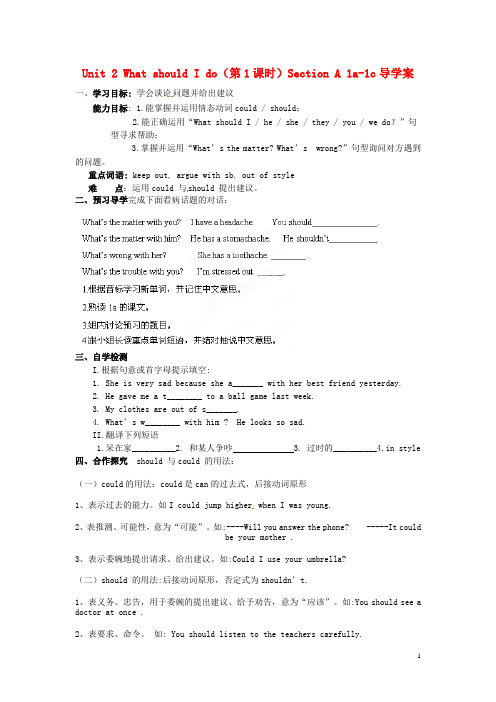湖南省郴州市嘉禾县坦坪中学七年级英语下册 Unit 12 What did you do last
中小学英语重难点:what did you do 句型

中小学英语重难点:询问对方过去在某个地方做了什么世界上有一个重要的法制就是20/80法则,这个法则在学习上也适用!掌握了20%的重难点知识,你就可以考到80%的分数。
今天智学君中小学英语给大家分享苏教译林版英语六年级Unit 3 Holiday fun 里面讲到的一个询问对方过去在某个地方做了什么的重难点句型What did you do...?,帮助中小学生朋友简单掌握。
1:中小学英语重难点:询问对方过去在某个地方做了什么句型what did you do … ?句型结构:问:What did you do+地点( at home, in your school, at the zoo.o )?答:I/We+动词过去式(saw, played swam.)(+其他)Unit 3 Holiday fun 原文:What did you do there? 你们在那里做什么了?We went to the bund and visited the Shanghai museum 我们去了(上海)外滩并且参观了上海博物馆。
重难点解析该问句用于询问对方过去在某个地方做了什么, 现在问,假期发生在过去,所以时态为一般过去时,其基本框架:疑问词十助动词十人/物+动词原形+其他?问句中的did是助动词,帮助构成疑问句。
问句中的do为实义动词,意为“做"实例讲解:星期一, Henry遇到了好朋友Peter, 于是他问Peter 周末做了什么: Henry: Hi, Peter. What did you do at home?? 嗨, 皮特;你周末你在家做什么了?Peter: I watched TV. what about you? 我看电视了。
你呢?Henry: I did my homework 我做我的家庭作业了。
2:中小学英语重难点:询问对方过去在某个地方做了什么句型what did you do … ?的练习题:光学不练假把式,学习到的知识只有经过练习才能够完全掌握。
Unit+12+单词课件+2023-2024学年人教版七年级英语下册

28.tent /tent/ n. 帐篷 29.put up 搭起;举起 put on穿上 put off推迟 put out熄灭;扑灭-
put up the tentThere we put up our tents and
made a fire to keep us warm and cook food on. 在那里我们搭起帐篷,生火取暖并做饭。
②还可意为“飞逝”。 How time flies! 时间过得真快呀! (2)fly 作可数名词,意为“苍蝇”。 There are two flies in the soup. 汤里有两只苍蝇。
24. high [hai]adj.&adv.高的(地) 25. high school 中学 a high fever 高烧 a high price 高价 high speed 高速 high temperature 高温
29.put up 搭起;举起 “挂起,张贴;举起;抬起” put on穿上 put off推迟 put out熄灭;扑灭-
put up the tentThere we put up our tents and made a fire to keep us warm and cook food on.在 那里我们搭起帐篷,生火取暖并做饭。
② surprise 可作及物动词,意为“使吃惊,使惊 奇”。 The news surprised Mike. 那则新闻使迈克很吃 惊。
③ surprised 形容词,意为“感到惊讶的”, 常 用于修饰人。surprising形容词,意为“令人惊 奇的”, 常用于修饰事物。 We are 我们对 这则惊人的新闻感到惊讶。
morning. 我熬夜一直到凌晨两点。
人教版七年级下册英语综合试题:Unit12第一课时课堂作业(216.5.3,无答案)

初中英语学习材料madeofjingetieji尚西中学2015-2016年度第二学期初一英语试卷Unit12 第一课时当堂作业2016年5月3日Ⅰ. 从方框中选择合适的单词并用其正确形式完成句子。
jump, beach, camp, stay, fly1. Linda ____ with us in a hotel last night.2. The ____ is a good place to take a vacation in summer.3. Mr. Green _____ to Beijing with his family last week.4. Tom likes sports and he is good at ______.5. Would you like to go _______ with us tomorrow? Ⅱ.单选1. __ the evening of May 31, the 2002 FIFA World Cup started in South Korea.A.OnB.AtC.OfD.In2. There ____ some interesting news in yesterday’s newspaper.A. is B. are C. was D. were3. Sorry, Mr. Wu. I ___ my homework yesterday.A. forget doingB. forget to doC. forgot doingD. forgot to do4. Last night his sister ________ lots of homework to do.A. has B. had C. haveD. is having5. I can see two _______ and three _______ in the picture.A. cows; sheepsB. cows; sheepC. cow; sheepD. cow; sheeps6. Many ________ come to _________ the Great Wall every year.A. visits; visitB. visitors; visitsC. visitors; visitD. visits; visits7. We watch the students ________ soccer every afternoon.A. to play B. play C. played D. plays8. We don’t know ________ next.A. how to do B. what to do C. what to do it D. where to doⅢ. 从方框中选择合适的单词完成对话,有一词多余。
湖南省郴州市嘉禾县坦坪中学七年级英语下册 Unit 10 I’d like some noodles

Unit 10 I’d like some noodles(第1课时)Section A 1a-1c导学案* 教师寄语:An apple a day keeps the doctor away. 一天一苹果,医生远离我。
【学习目标】【学习重点】:1、学习常用食物词汇;2、学会如何预定食物。
--What would you like? -- I’d like some…./I’m not sure yet.【课堂导学】:I、新课呈现Step1 Brainstorming(头脑风暴)Try to speak out the names of food you know.Step2 PresentationLearn the new words about food in 1a.Finish 1a, then check the answers.Look at the picture in 1a and learn the drills:--What would you like? -- I’d like some….Step3 ListeningListen and finish 1b. Check the answers.Step4 Pair workPractice the conversations in 1a .Then make your own conversations.II、合作交流Group work: 分析总结如何预定食物,并练习造句。
Notes:__________________________________________________________________________________________________________________【自主检测】:I、精挑细选II、完美呈现Some _________ (beef) is in the box.Mutton _________ (be) my favo rite food.Bring me some __________ (orange), and I want to make orange juice.I like rice. But my sister ____________ (not like) it.Ⅲ、连词成句you, like, what, would (?)___________________________________________________________noodles, like, please, the, I’d , beef (.)___________________________________________________________sure, not, I yet, am (.)___________________________________________________________【快乐链接】英汉对对碰:Match each word with the right Chinese meaning.mango 黄瓜pepper 西瓜eggplant 芒果cucumber 辣椒watermelon 茄子jelly 花生peanut 蘑菇lol lipop 果冻c hocolate 棒棒糖mushroom 巧克力【学习体会】成功&收获: 失败&不足:。
湖南省郴州市嘉禾县坦坪中学七年级英语下册 Unit 6 I’m watching TV(第1课时

Unit 6 I’m watching TV(第1课时)Section A 1a-1c导学案* 教师寄语:Time flies. 光阴似箭。
【学习目标】【学习重点】:1、初步掌握第31页的生词和句型;2、初步了解现在进行时;3、谈论人们的行为。
【课堂导学】:I、新课呈现Step1 BrainstormingSpeak out the names of animals as quickly as you can.Step2 Presentation(1) Learn the new words and phrases using some pictures.(2) Present key sentences with these pictures.—What are you doing? —I’m watching TV.I’m reading a newspaper. I’m talking on the phone.I’m using the computer. I’m making soup.I’m washing the dishes. I’m exercising.(3) Finish 1a, and then check the answers.Step3 ListeningListen and finish 1b. Check the answers.Step4 Pair workTalk about what people are doing in 1a.II、合作交流Group work:你能写出几个含现在进行时的句子?Notes:_____________________________________________________ _____________________________________________________________【自主检测】:精挑细选【快乐链接】 "ing"的来历相传很久很久以前有一个国王 (king),他非常喜欢sing,每天在王宫里唱歌,,连国家的事都扔在脑后不管,大臣们都很着急,但又都没有办法。
湖南省郴州市嘉禾县坦坪中学八年级英语下册 Unit 2 Wh

Unit 2 What should I do(第1课时)Section A 1a-1c导学案一、学习目标:学会谈论问题并给出建议能力目标: 1.能掌握并运用情态动词could / should;2.能正确运用“What should I / he / she / they / you / we do?”句型寻求帮助;3.掌握并运用“What’s the matter? What’s wrong?”句型询问对方遇到的问题。
重点词语: keep out, argue with sb. out of style难点:运用could 与should 提出建议。
二、预习导学完成下面看病话题的对话:三、自学检测I.根据句意或首字母提示填空:1. She is very sad because she a_______ with her best friend yesterday.2. He gave me a t________ to a ball game last week.3. My clothes are out of s_______.4. What’s w________ with him ? He looks so sad.II.翻译下列短语1.呆在家__________2. 和某人争吵3. 过时的__________4.in style四、合作探究should 与could 的用法:(一)could的用法:could是can的过去式,后接动词原形1、表示过去的能力。
如I could jump higher when I was young.2、表推测、可能性,意为“可能”。
如:----Will you answer the phone? -----It couldbe your mother .3、表示委婉地提出请求、给出建议。
如:Could I use your umbrella?(二)should 的用法:后接动词原形,否定式为shouldn’t.1、表义务、忠告,用于委婉的提出建议、给予劝告,意为“应该”。
湖南省郴州市嘉禾县坦坪中学七年级英语下册 Unit 9 Wh
Unit 9 What does he look like(第1课时)Section A 1a-1c导学案* 教师寄语: Clothes do not make the man. 人不在衣装。
【学习目标】:1. 学习描述人外貌的词汇;2. 学会描述人的外貌。
--What does he/she look like? -- He/She is…, and he/she has….【体验学习】:【课堂导学】:I、新课呈现Step1 Free talkTry to speak out the words of people’s looks you know.Step2 Presentation1. Learn the new words about people’s looks in 1a.2. Finish 1a. Then check the answers.3. Look at the picture in 1a and learn the drills:--What does he look like? Is he short or ta ll?--Well, he’s really…. And he has….Step3 ListeningListen and finish 1b. Check the answe rs.Step4 Pair workPractice the convers ations in 1a .Then make your own conversations.II、合作交流Group work: 总结归纳本课学的描述人外貌的词汇。
Looks: ______________________________________________________________________________________________________________【自主检测】:Ⅰ、完美呈现II、对比空间1. My brother is __________, but I’m short.2. Do you like straight or ___________ hair?3. I don’t like white. My favorite color is ___________.4. Mary is very heavy, but her sister is very __________.Ⅲ、译展身手1. 你爸爸长什么样?_________________________________________________________?2. 你爸爸是什么样的人?_________________________________________________________?【快乐链接】描述人外貌的词汇(1)short 矮 tall 高thin 瘦 overweight胖slim 苗条 plump 丰满tubby 矮胖 muscular 强壮skinny太瘦了 medium height 不胖不瘦plain 长的一般 good-looking长的好看【学习体会】成功&收获: 失败&不足:。
- 1、下载文档前请自行甄别文档内容的完整性,平台不提供额外的编辑、内容补充、找答案等附加服务。
- 2、"仅部分预览"的文档,不可在线预览部分如存在完整性等问题,可反馈申请退款(可完整预览的文档不适用该条件!)。
- 3、如文档侵犯您的权益,请联系客服反馈,我们会尽快为您处理(人工客服工作时间:9:00-18:30)。
1
Unit 12 What did you do last weekend(第2课时)Section A 2a-2d
导学案
* 教师寄语:If you want to understand today, you have to search yesterday.
想要懂得今天,就必须研究昨天。
【学习目标】【学习重点】:
继续学习谈论过去事件; 学会用疑问词who, what, when。
【体验学习】:
【课堂导学】:
I、新课呈现
Step1 Review and Lead-in
Quick action: The phrases in 1a or the past forms of the verbs.
Step2 Presentation
Show some pictures, ask and learn. eg:
--What did you/he/ she/they do? --Where did you/he/she/they go?--Who…?
Step3 Listening
1. Go through the sentences in 2a.
2. Listen to 2a and underline the words you hear.
3. Listen again. Write C for Carol, J for Jack or B for Becky next to the statements
in 2b. Then check the answers.
Step4 Pair work
Student A asks questions with who, what or where and Student B answers. Finish 2c.
Role-play the conversations in 2d.
II、合作交流
Group work:模仿2d编写对话,谈论过去事件。
Notes:__________________________________________________________
__________________________________________________________
【自主检测】:
I、精挑细选
2
II、你来我往
A: Hi, Mike! 1. _______________
B: It was pretty good.
A: 2._________________
B: I went to the Summer Palace last weekend.
A: 3. ____________________
B: I went with my parents.
A: 4. ___________________
B: It was cloudy and cool.
A: 5.___________________
B: The people there were very friendly. We had so much fun.
【快乐链接】动词过去式不规则变化之二:
ia: sing sang ~ew: fly flew
ring rang drawdrew
swim swam growgrew
drink drank knowknew
begin began throw threw
【学习体会】
成功&收获: 失败&不足:
